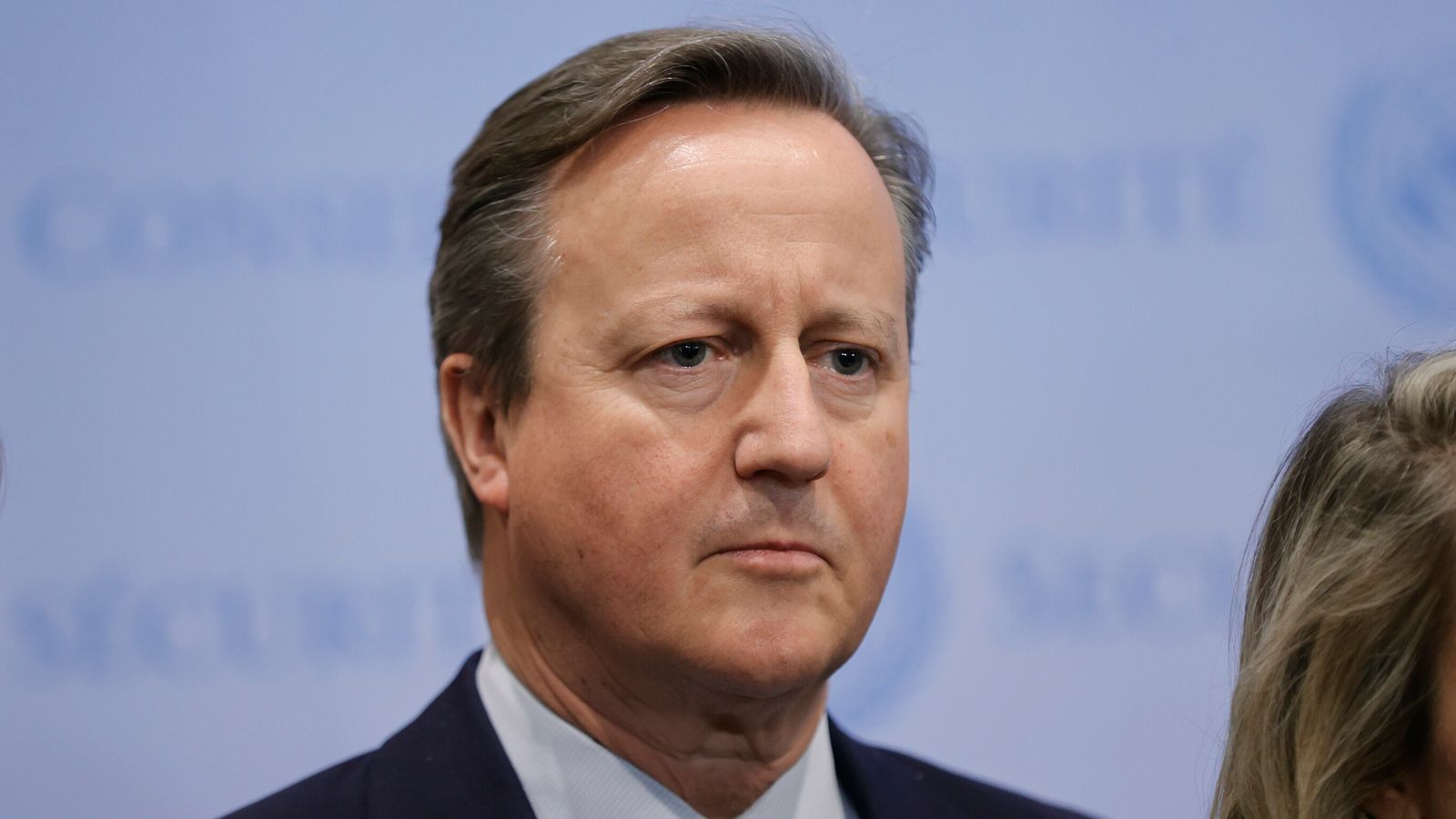At every level of the British diplomatic machine, the focus after Saturday night’s Iranian attack on Israel is now to do whatever possible to de-escalate tensions in the Middle East.
The message from the UK government is twofold.
First, that it stands with Israel and backs its right to self-defence – after all, this terrifying attack without precedent would trigger a heavy response anywhere else around the world.
👉 Listen above then tap here to follow Politics at Jack at Sam’s wherever you get your podcasts 👈
At the same time, they do not want to see subsequent moves that then create an out-of-control spiral.
This is broadly the view of much of the G7, reflected in the statements after the leaders’ call on Sunday afternoon.
The US – and to a certain degree Britain – helped with the operation on Saturday night and is so supportive in public to Israel right now precisely so that it might have a hope of a degree of influence on what comes next.
They are all looking nervously at what Israel does next in order to respond to the attack – hoping that occasional Israeli talk of a “significant retaliation” does not play out.
Asked what a better and a worse outcome would look like, one UK source involved in discussions said: “The best case is that Israel doesn’t strike anything inside Iran – maybe goes after proxies in Syria or Yemen.
“The worst case is they take on Iran’s nuclear infrastructure.”
There is no certainty at this moment what path the Israelis will go down.
To try and encourage them to go down the former, less aggressive path, there are some who will try and draw a line between the 1 April Israeli attack on the Iranian consulate in Damascus, Syria, which killed members of the Iranian Revolutionary Guard.
The fact this was a consulate building on foreign soil and allies like the US were not warned in advance was seen as huge provocation to Iran, which argues Saturday night’s attack is a response to that.
The Politics at Jack and Sam’s podcast reveals worries in Whitehall that Israel may reject any attempts to convince them that Iran’s actions were a proportionate response.
There are fears that by sending hundreds of drones towards Israel, Iran may have been attempting to “map” the operational capacity of the defence shield known as the Iron Dome.
They fear the mass attack now means Iran has a much better understanding of the manner in which the drones and other missiles were taken out by Israeli systems – where its strengths lie and where its vulnerabilities may be.
If Israel feels weaker and more vulnerable as a result of the nature of the attack, that may boost those in the Israeli war cabinet pushing for a tougher response, and to focus their resources in Iran rather than Hamas in Gaza, where they have been struggling to make progress in recent weeks.
Read more:
Will Israel let an attack by Iran go unpunished? Probably not
Iran could claim symbolic victory – but Israel’s defence held against ambitious attack
The success of the Iron Dome protection system, along with allies’ efforts to down the drones and missiles before they could damage Israel, has prevented a very different outcome.
“If I’d woken up this morning to pictures of civilian destruction and death, the response of the whole world would be very different,” said one UK figure involved, acknowledging the knife edge events are turning on.
One question now is how British politics will respond.
The Tories and Labour have adopted similar language so far, conscious just how treacherous the Middle East has proved ever since the October attack and neither is keen to misstep at the start of this new phase.
The government is looking at additional sanctions on Iran, and Labour has already signalled they would back this.
Lord Cameron will lead the diplomacy, although he returns from a US trip that saw mixed success – which included a meeting with Secretary of State Anthony Blinken, but also a failure to see Jake Sullivan the national security advisor as had been expected.
The reality is much of the diplomacy will see the UK in the slipstream of the US, meaning that relationship is more crucial than ever.


